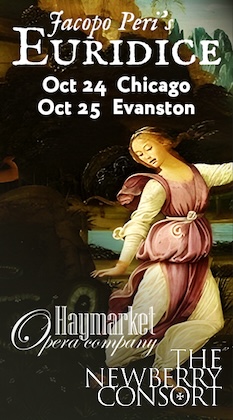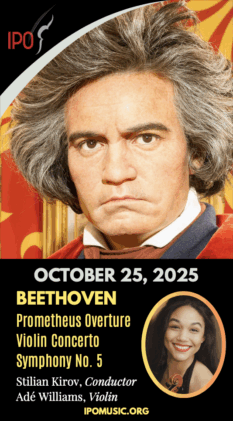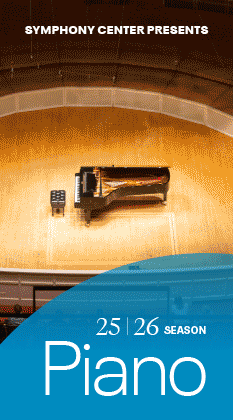Pergolesi rarity highlights motley CSO program
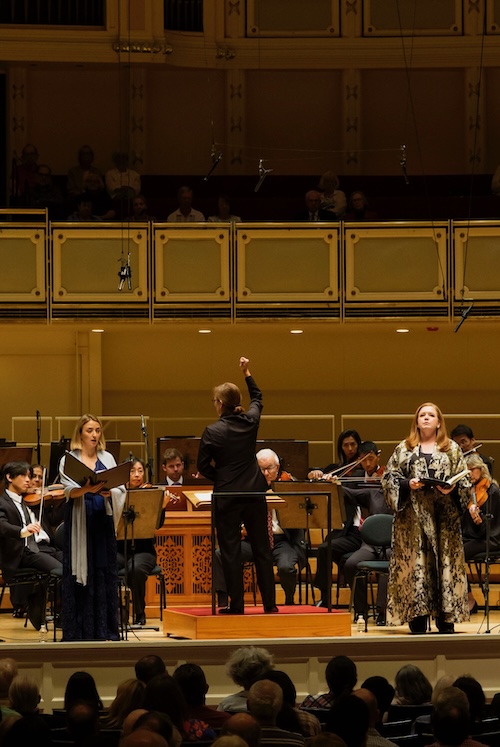
“It is a sobering thought that when Mozart was my age, he had been dead for two years.” So said Tom Lehrer (who himself died earlier this year) on his timeless 1965 album That Was the Year That Was, recorded when he was 37.
Well by the time Giovanni Battista Pergolesi was 37, he’d been dead for eleven. Perhaps no other composer in the standard repertoire had a shorter creative life. His considerable reputation rests on a handful of inspired works composed in his early 20’s. Pergolesi’s oeuvre culminates with the Stabat Mater, completed weeks before his untimely death and performed Friday afternoon by the Chicago Symphony Orchestra for the first time in over 40 years.
Two standout soloists highlighted Friday’s performance: soprano Giulia Semenzato, making her CSO debut, and mezzo Jennifer Johnson Cano, most recently heard with the orchestra in Haydn’s Mass in Time of War under Manfred Honeck last March. Both sang with luminous, supple blend in Pergolesi’s duets, conveying the pathos of Mary’s lamentations at the cross with forthright expression. Semenzato’s limpid tone glowed in her mournful solo arias, and Cano’s darker hues were perfectly suited to the work’s somber atmosphere.
Also making her CSO debut was conductor Daniela Candillari, currently principal conductor of the Opera Theatre of Saint Louis, who led the accompanying string and continuo consort with unobtrusive efficiency.
Pergolesi’s high Baroque vocal elegance followed a curious hodgepodge of a first half.
The performance opened with the first CSO subscription performances of Carlos Simon’s Fate Now Conquers (2019). This five-minute curtain-raiser was composed as part of Gabriela Lena Frank’s Creative Academy of Music, where Simon was asked to compose a work in response to a Beethoven symphony. Fate Now Conquers takes the Allegretto of Symphony No. 7 as its point of departure, and draws further inspiration from a Beethoven journal entry of 1815, which records an excerpt from The Iliad.
From the beginning, percussive accents punctuate racing strings and swirling winds, before driving arpeggios undergird sustained lines in the brass. The agitation thins out for a brief moment to give way to a plaintive cello solo, rendered sensitively by John Sharp, before the tension resumes, ultimately ending on a bruising chord in the low strings. Simon’s energetic miniature undeniably packs a punch, though one could not help wondering about a programming choice that requires an entire wind section for five minutes of music, as the balance of the program only called for strings.
Barber’s ubiquitous Adagio for Strings followed, in a rather direct, literal rendition from Candillari. The restive respiratory interjections from the audience seemed to speak to the absence of the desired rapt stasis in the performance.
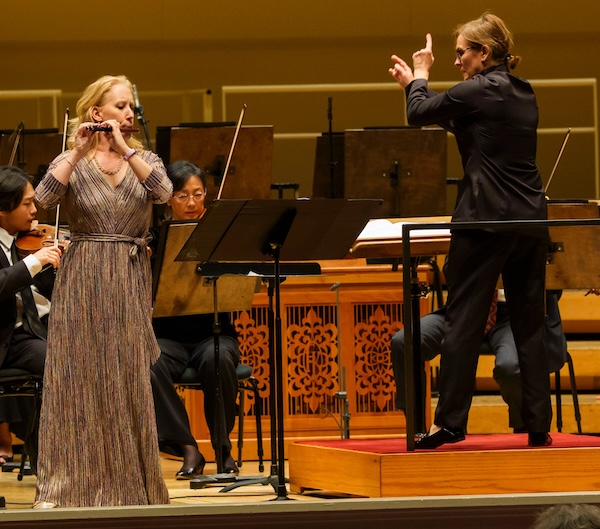
with the CSO on Friday. Photo: Todd Rosenberg
The first half closed with the first CSO performances of Thea Musgrave’s Piccolo Play. Originally composed in 1989 for piccolo and piano, Musgrave revised the work in 2022 with string accompaniment for the 50th anniversary of the National Flute Association. CSO piccolo Jennifer Gunn premiered this new version with the Chicago Philharmonic at the 50th NFA Convention in Chicago that year, and was again the soloist for its first CSO subscription performances.
Piccolo Play unfolds in seven brief movements, each named after a Couperin harpsichord piece. The solo piccolo weaves enchanting melodic minor lines in “L’Enchanteresse” (The Enchantress) and makes ranine bounds in “L’Amphibie” (The Frog). Each movement has an aphoristic quality, and a pointillist texture prevails in the central ones. Gunn’s stern piping vividly depicted “Le Bruit de Guerre” (The Noise of War) and she was unfazed by the technical demands of the final breakneck “Le Turbulent” (The Turbulent One).
Gunn is a true virtuoso of her instrument, more at ease in a soloist role than many orchestral players. Her pure, well-projected tone was always in the service of Musgrave’s condensed expression and made a compelling case for the piccolo as a concertante instrument.
Candillari attentively presided over the reduced string accompaniment, ensuring balances always favored Gunn, who received warm and well-deserved applause from the hometown crowd.
The program will be repeated 7:30 p.m. Saturday. cso.org
Posted in Performances
